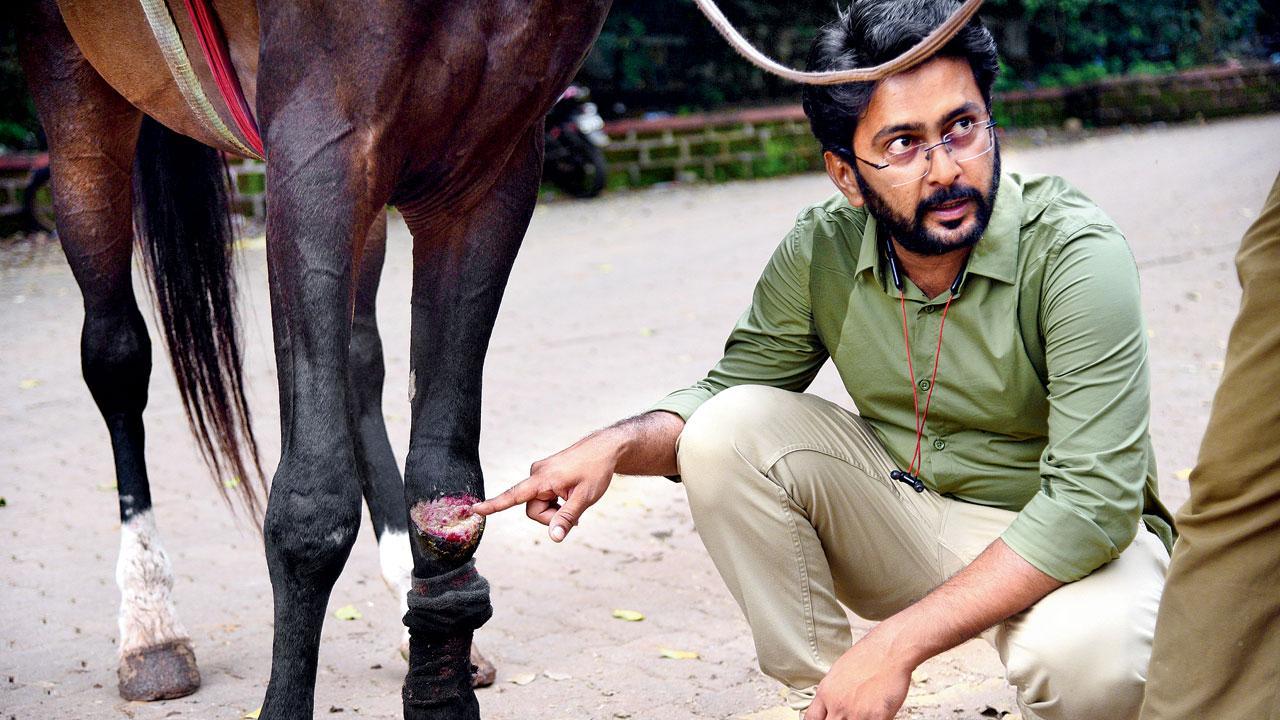Home / Mumbai / Mumbai News / Article /
Maharashtra: Braving the pavers
Updated On: 24 September, 2023 08:04 AM IST | Matheran | Ranjeet Jadhav
Matheran’s graceful horses are struggling with distal limb injuries, tendinitis and bruising after MMRDA replaced its original mud paths with slipper clay paver blocks. mid-day visit the eco-sensitive zone where a community of 2,000 depends on this equestrian ecosystem for survival

mid-day spent a day with Dr Anil Lahane, who found alarming injuries in the legs of most of the horses that he examined at Matheran
Even if you are not a travel enthusiast, Matheran is a name you’ve surely heard at some point or another. The tourist hotspot is renowned for the fact that there are no motor vehicles allowed within its limits, transport only limited to horseback, carriages and now the e-rickshaws.
In the same hill station, though, a troubling scenario unfolds today. More than half of the horses that have long been the loyal companions of tourists are now bearing the weight of deformities in their legs and backs. These magnificent creatures, known for their grace, are struggling due to the eco-friendly but unforgiving paver blocks that now line their paths, turning their once-surefooted strides into treacherous, uncertain steps.



